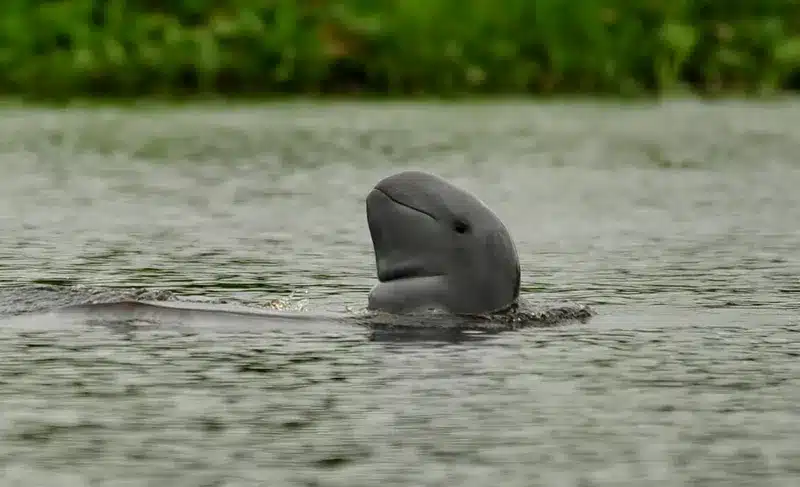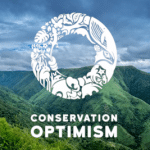Wondering what went right this week in the conservation world? We’ve got you covered with our Conservation Optimism Round-Up! We are collating stories of optimism from around the globe so that you never miss your dose of weekly motivation.
1. The first wild bison calf has been born in the UK in more than 6000 years
” Our Bison Rangers were surprised to be greeted by a calf when carrying out checks on the bison herd in September at West Blean and Thornden Woods. The adorable baby bison is the fourth member of the Wilder Blean bison herd, a team of ecosystem engineers who are transforming West Blean and Thornden Woods to combat the climate and biodiversity crises. ”
Some very welcome good news! The first wild Bison calf born is 6,000 years in the UK. 💙🐃#ConservationOptimism https://t.co/GGvHG0juOf
— Liz (@thegsyscientist) October 23, 2022
2. West Virginia officials embark on bobwhite quail restoration effort
” Gov. Jim Justice announced Wednesday that 12,000 bobwhite quail have been added at wildlife management areas across the state. The goal is to bring the numbers to 20,000, and the Division of Natural Resources will conduct more stockings through October. It’s part of a five-year restoration project.”
Thanks to #conservation efforts in #WestVirginia, over 12,000 Bobwhite #Quail have been released into the wild to help restore the pop'n!#unitedstates #rewilding #birds #nature #wildlife #biodiversity #conservationoptimism #news #LetNatureThrivehttps://t.co/qEiYDxisQX
— Global Conservation Solutions (@_GCS_) October 22, 2022
3. ‘Bees get all the credit’: slugs and snails among 2023 Chelsea flower show stars
” Stag beetles and hornets will be among the stars of Chelsea flower show next year as horticulturalists encourage people to welcome invertebrates into the garden. Bumblebees and butterflies tend to get a lot of press, but in a 2023 garden sponsored by the Royal Entomological Society, less glamorous creepy-crawlies will take centre stage.”
Great to see a change in focus!
— Buglife (@Buzz_dont_tweet) October 21, 2022
For more helpful hints & tips to encourage & promote #invertebrates in your wild spaces check out our website ➡️ Get Involved ➡️ Gardening for Bugs 🐌🐜🐛#ConservationOptimism #BugsAreAmazing https://t.co/cLWyAlY1DM
4. Tiwi Nunka becomes Ecuador’s first Indigenous-Led Conservation Area
” Located at the junction of the Yacuambi and Kiim rivers in the province of Zamora Chinchipe, this reserve spans 13,585 acres (5,498 hectares) and forms part of Ecuador’s National System of Protected Areas. Tiwi Nunka is not just an achievement for nature— it is also a cultural achievement.”
A new #indigenous protected area in #Ecuador now conserves over 13,000 ac of #Amazon #rainforest for Andean #Bears, Mountain #Tapirs, and #Puma! #protectedareas #nature #wildlife #biodiversity #news #conservationoptimism #conservation #LetNatureThrive https://t.co/h2zm5YYjti
— Global Conservation Solutions (@_GCS_) October 19, 2022
5. Conservation efforts establish new populations of critically endangered insect in Britain
” Critically endangered pine hoverflies have been shown to be breeding successfully in new populations around the Cairngorms National Park thanks to conservation efforts by the Rare Invertebrates in the Cairngorms (RIC) partnership.”
Great news from @rzss!
— Buglife (@Buzz_dont_tweet) October 18, 2022
🪰
Partnership working at its best 👏#ConservationOptimism #CharityTuesday https://t.co/9jOTcTbUAp
6. Innovative dolphin-saving devices bring hope for remaining river dolphins
” Thanks to electronic pingers, the last 80 river dolphins in the Mahakam river in Indonesia can breathe a little easier. A pilot project last year proved that the pingers prevent dolphins from becoming entangled in fishing nets – their main cause of death – and now the project has been extended to all fishers along the stretch of river where the dolphins live.”
Crowdfunding! Tech! #River dolphins!
— David Tickner (@david_tickner) October 18, 2022
Proper 21st century conservation, with great results. Lovely stuff. 🐬#ConservationOptimism @Darwin_Defra @wwf_uk https://t.co/w3IxLyQ3R9
7. Tuna catch rates soared after creation of no-fishing zone in Hawaii
” Large no-fishing areas can drive the recovery of commercially valuable fish species, a study suggests. Ten years’ worth of fisheries data have shown that catch rates of two important types of tuna increased drastically in the vicinity of a marine protected area surrounding the northwestern Hawaiian islands. “
My news to me good news for Oct 21 - a great #OceanOptimism #EarthOptimism storyhttps://t.co/Def1RsG9pl
— Dr. Nancy Knowlton (@SeaCitizens) October 21, 2022
Have a story to share for our weekly round-up? Use #ConservationOptimism on Twitter, Facebook, LinkedIn and Instagram!


